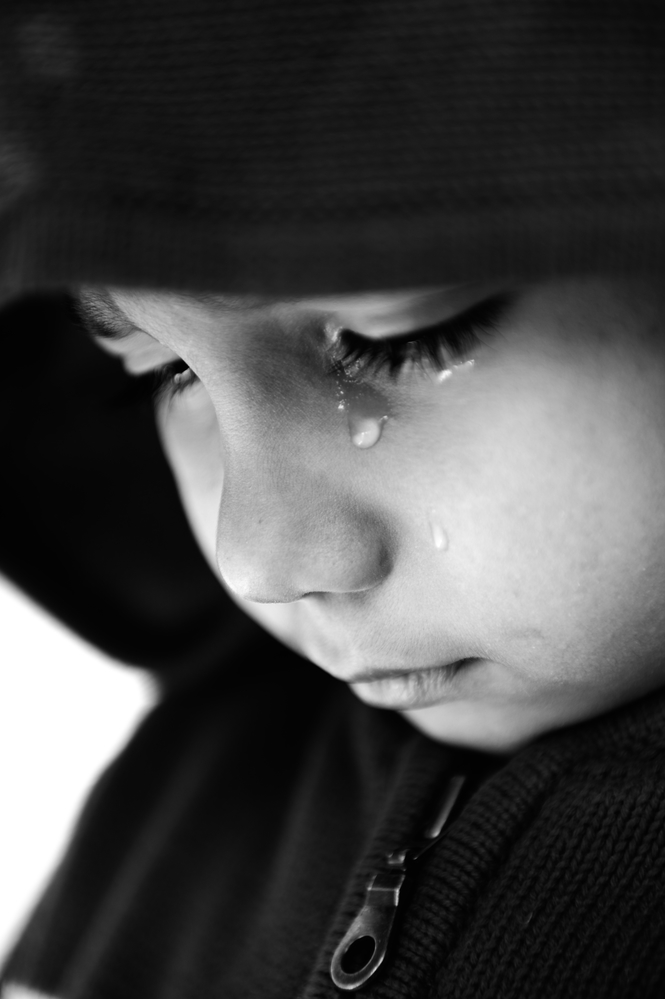
Do you ever wonder what the world would be like without any pain or suffering?
I am in the middle of a class on Christian Responses to Evil and Suffering. The question above was one of our topics this past week. It got me thinking and turning to look again at the description of heaven Revelation 21. Let me share with you a little of that journey.
This week we read Paul Buller’s book Suffering: The Heart of the Matter: Life, God, suffering, and why my wife had a cardiac arrest. Catchy title, right? (No, that’s not a sponsored link, but I do recommend the book.)
The second section is a “thought experiment” or a fictional “what if” story (pages 99-128). In it, an atheistic man has just died and finds himself in a coffee shop sipping a steaming cup and chatting with God. That’s funny in and of itself, but it gets better.
The man asks God why there is so much pain and suffering. God asks the man if he thinks he could make a better world. The man takes God up on the offer to do just that.
God and the man are instantly transported to an alternate universe. (This is where my dad would say it’s a “science fiction story” and consider changing the channel. Hang in there and roll with me a little longer. I’ll get to how this fits with Rev. 21 at the end.)
Here’s the deal they set up. The man can ask God to change anything about the world. God will do it, then come back in one year to ask how things went and what else the man wants to change.
First Change: No Pain
The man decides to start small and ask that there be no more pain. With a hint of fear and horror in his eyes, God grants the request and disappears.
Quite proud of himself, the man walks around observing people. He cannot be seen or heard, but he can see and hear. He also no longer sleeps.
The first few minor accidents he sees the result in confused people who expected to hurt, but don’t. They shake their heads and continue on. Then he sees a hysterical mother at a bus stop. Her toddler was sucking his thumb, but he didn’t stop there. The little one had chewed his own thumb off, right to the bone!
Next, a young boy rides by on his bike. A great gash on his leg leaves a blood trail behind him while he blissfully pedals on, focused on a race with his buddies. He is later found a few blocks later, dead from loss of blood.
To make a long story short, humanity begins to panic as people die from what would have been preventable injuries. Without pain to signal something was wrong; things from cuts to cancer usually led to death.
By the end of the year, people live fearfully huddled in their homes, avoiding anything potentially harmful, and checking themselves every 30 seconds to see if they really are ok.
When God and the man meet back at the cafe in God’s world once again, the man quickly demands, “Bring back the pain!” He reflects, “Losing the pain, it turned out, was a very bad idea. Why? Because pain lets us know when we have hurt ourselves. It helps kids learn how to safely interact with the world, and makes sure grown-ups are aware when something is wrong with their body. It is an alarm system to protect us against the dangers of life” (p. 115).
Second Change: No Harm
After some thought, the man thinks, “what if there were no dangers” or possibility of harm? “No injuries. No disease. No death… After all, isn’t that what Heaven is supposed to be like?” (p. 115-116). Basically, he wants humans to be invincible. God agrees and leaves for a year.
It took time for people in the alternate world to realize something had changed. Eventually, through the news, people became emboldened by the exploits of others. Extreme sports, like skydiving without a parachute, became all the rage.
Service industries like medically related fields collapsed. People began demanding more perks at work with less actual work. After all, why work to provide food and shelter if you never get hungry or suffer from extreme weather?
People began living outdoors in vacation spots because no one wanted to keep their homes in repair. Travel eventually stopped because no one wanted to work to provide fuel or mechanical repairs.
Time itself began to have no meaning as each day became like every other.
Eventually, even relationships broke down. What was there left to talk about? There was no work. No school. No sports (no one wanted to work to train and play). No difference between the weekend and the weekday. Why care for your kids, spouse, or friends? It’s not like they’ll suffer without you.
Buller describes more consequences, but that’s depressing enough. Basically, people gave up.
Third change: All Pleasure
By now, the man thinks he has the answer. He asks God to make people feel completely happy all the time. God agrees and leaves.
This change in the alternate world is instantanious because everyone becomes focused on inner pleasure. No one moves. No one interacts. They just sit there like slugs, focused on what no one else can see.
After another long year, the man decides this time he’s going to ask God why he made the world as he did rather than jumping in with suggestions to change it.
Am I teaching children a lie?
Well, that’s a quirky little story, you may say, but what does that have to do with teaching children God’s truth?
Here’s the deal. If you picture heaven as floating on a cloud all day playing the harp, I wouldn’t want to go. That sounds dead boring. What if our view of heaven is wrong? What if my view of heaven is wrong? What if I’m teaching children a lie about heaven?
What the Bible says
After studying this and related works, I went back to the description of heaven in Revelation 21. What exactly does God say about the new heaven and the new earth?
The most obvious difference between this world and the next is that through Christ, sin will no longer separate God from humankind. But there’s more.
“And I heard a loud a voice from the throne, saying, ‘Behold, the tabernacle of God is among men, and He will dwell among them, and they shall be His people, and God Himself will be among them, and He will wipe away every tear from their eyes; and there will no longer be any death; there will no longer be any mourning, or crying, or pain; the first things have passed away” (Rev 21:3-4 NASB).
I’m not an expert, but the Greek words here are interesting when I looked at the definitions provided in my Reader’s Hebrew and Greek Bible. (No, that’s not a sponsored link.)
God will comfort us by wiping away, wiping out, removing all our tears or weeping. I always took that to mean there would be no more tears, but it could also mean that God is there to comfort us in a more intimate way than He does now.
I am most excited about the description of no more death, grief, sadness, mourning, or sorrow. Boy, howdy!
Then there will be no more “shouting, clamor, loud cry, crying.” That makes me think of babies. There’s the “I’m hungry” cry, the “I don’t want to go to sleep” cry, the “I’m mad” cry, the “I’m hurt” cry, and the “I’m just not happy” cry. I wonder if God sees our crying the same way. We never really grow out of that, just change how we express it. The crying described here seems to indicate the cry-until-you-can’t-breathe-because-you’re-so-upset kind of crying. Either that or the loud mourning customs of Jesus’ day. Maybe both.
The word used for “pain” is interesting. The definitions provided in my Bible are “toil, pain, distress, affliction.” Because of the work and discomfort (like hunger pains) in the Garden prior to the Fall (Gen. 1:26-31; 2:15-20), this seems to lean toward more severe pain.
Look. I ususally don’t share on this blog what I haven’t thought through at greater length, but this is an exception. This is new territory for me. I don’t have all the answers. What I do know is that heaven is real. It is a place to look forward to with great hope and expectation becasue that is where those who trust in Christ will live with Him forever.
What do you think? Have you ever thought through these issues? What other passages talk about heaven? Please share your thoughts below.




